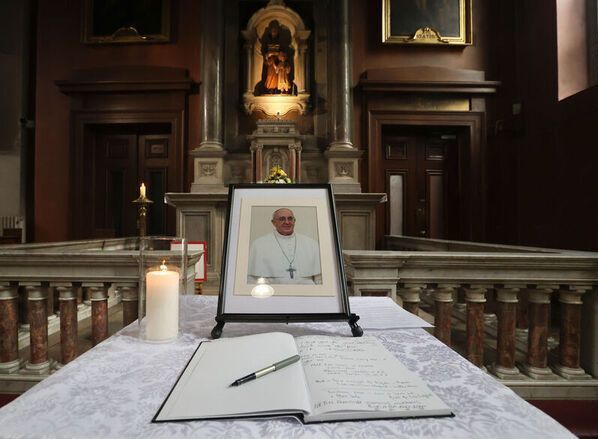Muireann Nic Amhlaoibh's recent CD is “Foxglove & Fuschia.”
Traditional Music / By Daniel Neely
I begin with sad news of the passing of the great uilleann piper Liam O’Flynn on March 14. Influenced by the piping legends Leo Rowsome, Seamus Ennis, and Willie Clancy, O’Flynn was an extraordinary piper who changed Irish music in his own right with Planxty, the incredibly influential group which he co-founded in 1972. This loss has left the traditional music community shaken, but that his memory will long stand is a certainty. He was truly one of the music’s titans.
[caption id="attachment_93733" align="alignnone" width="300"]
In the music player this week is Muireann Nic Amhlaoibh’s recent CD “Foxglove & Fuschia.” Born to an Irish-speaking family and raised on Inis Oírr, Cape Clear Island, and in West Kerry’s Dingle Peninsula, Nic Amhlaoibh is a highly regarded singer (sean nós as well as contemporary and folks styles) and traditional flute player who some readers will recognize as the former singer of the great group Danú. She has several albums to her credit; this is her first solo effort since “The Small Hours” in 2013, and her first recorded appearance since Danú’s 2015 album “Buan.” In addition to being a recording artist, Nic Amhlaoibh has also done a good deal of television presenting, notably for TG4’s “Gradam Ceoil.” She currently co-hosts the traditional music series “Port” with Scottish singer Julie Fowlis. Nic Amhlaoibh is also one of the forces behind FairPlé, the recently formed organization that is working to achieve gender balance in Irish traditional and folk music.
“Foxglove & Fuschia” is a return-to-roots effort for Nic Amhlaoibh. After leaving the hustle and bustle of 15 years on the road with Danú, she’s settled back into life in West Kerry, where she’s raising a family and, crucially, reinvigorating her music and overall sound, which seems now to trend toward simplicity without straying from sophistication.
From the first track, “Bríd Óg Ní Mháille,” Nic Amhlaoibh’s dark and powerful voice makes a striking impression. Her phrasing and delivery project a sense of real purpose throughout the album that is especially felt on tracks like “Cáit Ó Gharán A' Bhile,” “Muirisín Deas Agus Nóra,” and “Bean Dubh A’ Ghleanna" which communicate emotional depth rather directly.
I particularly like Nic Amhlaoibh’s take on “Johnny Has Gone for a Soldier.” Taking her version from that of Pete Seeger, she’s given it an uncluttered arrangement, with Gerry O’Bierne’s straightforward, unfussy banjo playing allowing the beauty of Nic Amhlaoibh’s voice and Pauline Scanlon’s harmonies to really shine.
https://youtu.be/BX7p8Z8c2UI
“Where Foxglove” is one of the album’s best tracks. It’s an incredibly evocative original song by Gerry O’Bierne, but Nic Amhlaoibh’s delivery lifts it to another level, reminding me of singers like Linda Ronstadt or even Barbara Streisand. I find it has a different feel than the rest of the album, but it blends in nicely and elevates the whole.
Another lovely track is “An Sciobairín” with Seamus Begley (vocal) and Donogh Hennessy (guitar). There, the famous Famine song is given a robust transformation into Irish (the translation was done by Kerry singer Garry McMahon), and Nic Amhlaoibh and Begley trade verses over Hennessy’s subtle backing before coming together on the final stanza where Begley’s ruggedly delicate voice provides a wonderful contrast to Nic Amhlaoibh’s smoother but no less robust approach. While it might appear at the outset that the two singers have little in common in terms of approach, their duet at the end reveals some striking similarities.
https://youtu.be/ZHtbIRXC5V4
The album also includes a couple of noteworthy instrumental tracks. “Ormond Sound / The Torn Jacket” is an energetic set of reels delivered superbly on whistle, while “Neily Cleere’s / …,” a fine set of polkas, features Nic Amhlaoibh’s father, fiddle player Feargal Mac Amhlaoibh. There, the combination of flute and fiddle is well balanced and a delight to hear.
“Foxglove & Fuschia” is a fabulous album from one of trad music’s finest singers. The album will absolutely appeal to fans of Danú and will attract lovers of traditional music, but it’ll also draw in anyone who loves great singing regardless of musical preference because Nic Amhlaoibh’s voice, delivery, and taste are excellent. Definitely recommended! To learn more, visit www.muireann.ie.









